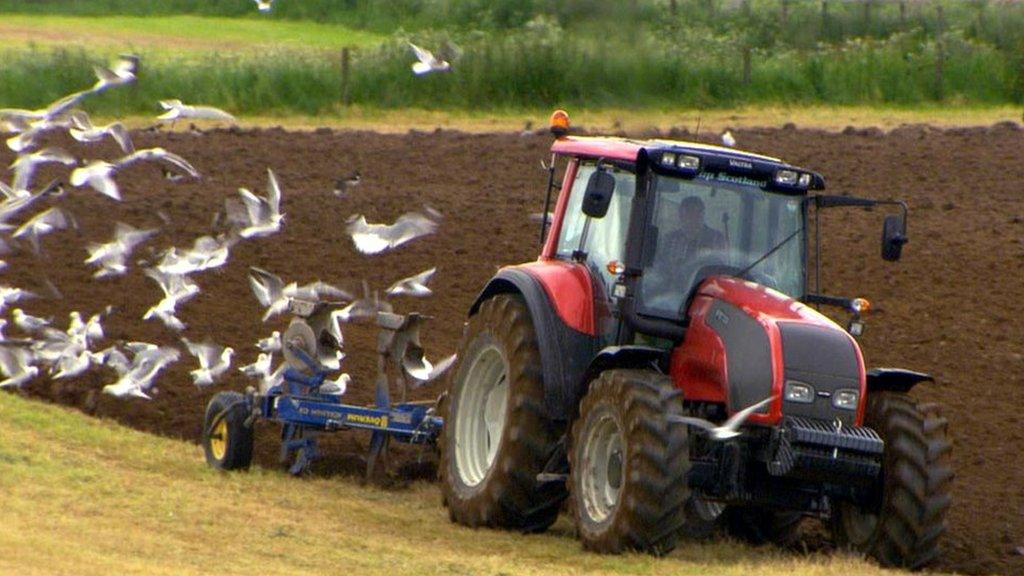WhatsApp groups to help Durham Police tackle crime
- Published
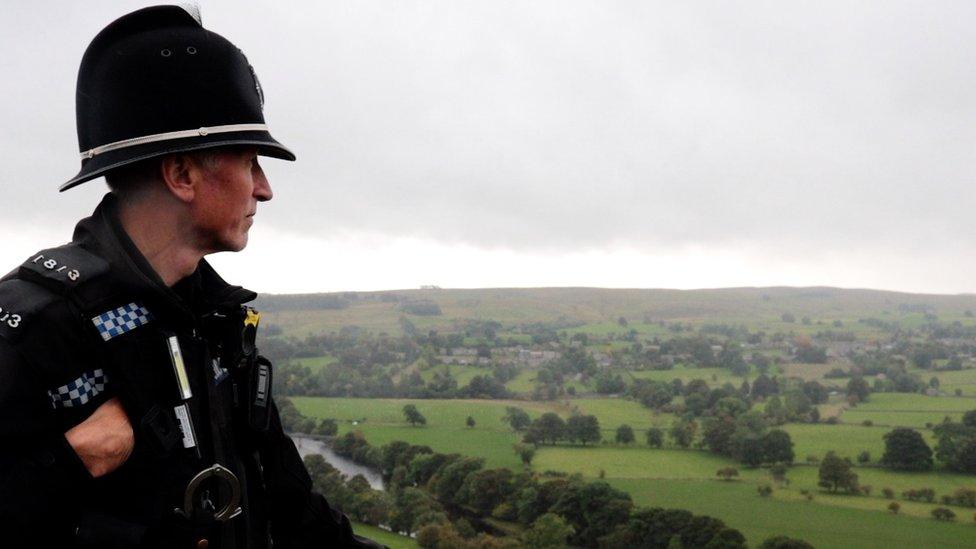
PC David Williamson said the groups provide "so many eyes and ears" across large areas
More than 1,500 people from rural areas are using WhatsApp groups to give information to Durham Police in an effort to cut crime.
Three groups, which are not run by the force but do include officers as members, operate across Teesdale, Weardale and Middleton-in-Teesdale.
Police said shared information had helped them find missing people, lost sheep and stolen vehicles.
One farmer said the groups made people "feel more confident" about security.
Richard Betton, 68, has spent four decades as a hill farmer on isolated land in the dales and described the area as "very peaceful, but lonely and bleak".
"I'm of the age where I'm not brilliant with technology, but on my mobile phone there are regular postings. Some of it is the police giving us people to look out for, some is farmers letting the group know they've seen something that doesn't look right," he said.
"It really is working. It's producing results. It's making policing easier for the police and it's making better use of resources in general.
"I think we all feel more confident about our security and safety and we generally have a better relationship with police on the ground."
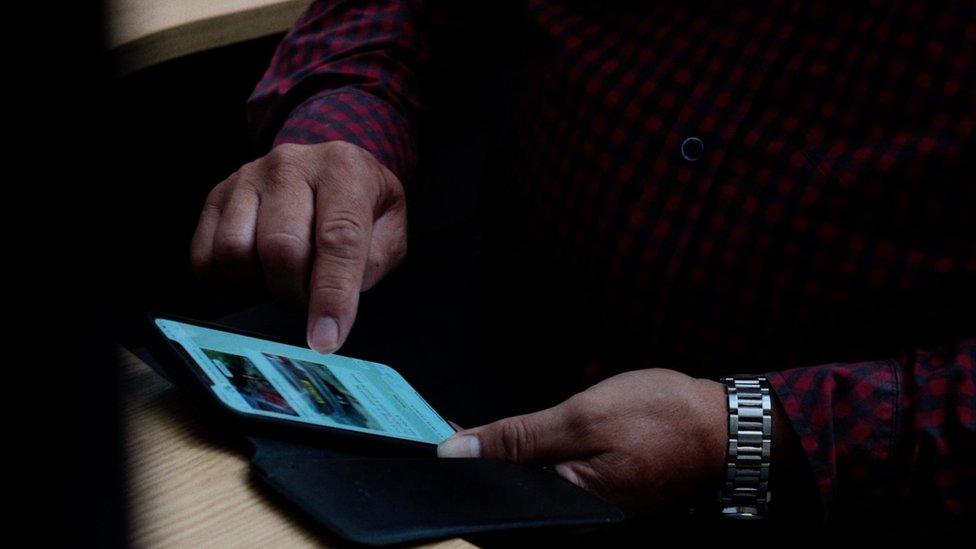
The WhatsApp groups enable group members to share information instantly
Insp Ed Turner described the WhatsApp groups as being "an army of volunteers" and pointed to a recent incident where 24 messages provided information for his team to find a stolen quad bike and return it to the farmer who asked for help.
"We could have had 50 officers trying to look out for that with helicopters and drones, but without instant messaging we'd have never got those results," he said.
"The use of WhatsApp messaging worked brilliantly that day. It's a cracking example of how the community is helping us help them.
"It's not seen as a reporting tool. We ask people to ring 101 or 999, that will always remain the same. It's about them sharing information with themselves and they come together and help us as well when we do specific operations targeting crime in a particular location."
Policing rural areas is "very challenging", according to PC David Williamson.
"We have such a huge area to cover and that can be difficult, trying to keep community confidence and visibility high. There are some really isolated farms and locations so that poses its own challenges," he said.
"The [WhatsApp] groups have become an invaluable resource. It's two-way communication. There are so many people on it, we're so connected. We have so many eyes and ears across the dale."
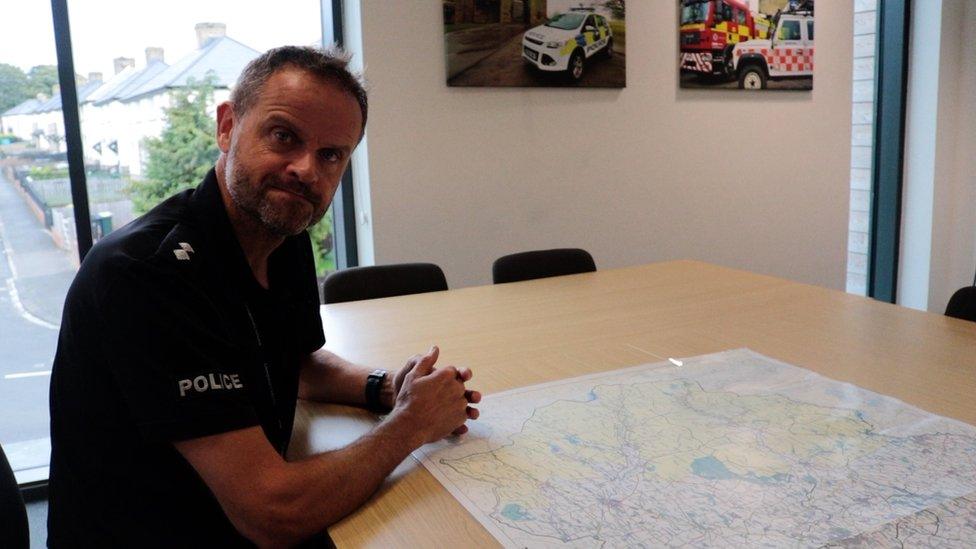
Insp Ed Turner said instant messaging had helped solve cases that would otherwise remain open
Rob Danby is a retired police officer who now manages charity Upper Teesdale Agricultural Support Services (UTASS).
He said: "If one person is the victim of crime, everyone knows about it. The impact of one crime in a rural area has so much more impact than crime in, for example, a city.
"Teesdale has seen a reduction in crime. There's no evidence to link it to the groups, but it's hard to imagine they haven't had a significant impact."

Follow BBC North East & Cumbria on Twitter, external, Facebook, external and Instagram, external. Send your story ideas to northeastandcumbria@bbc.co.uk, external.
Related topics
- Published2 August 2022
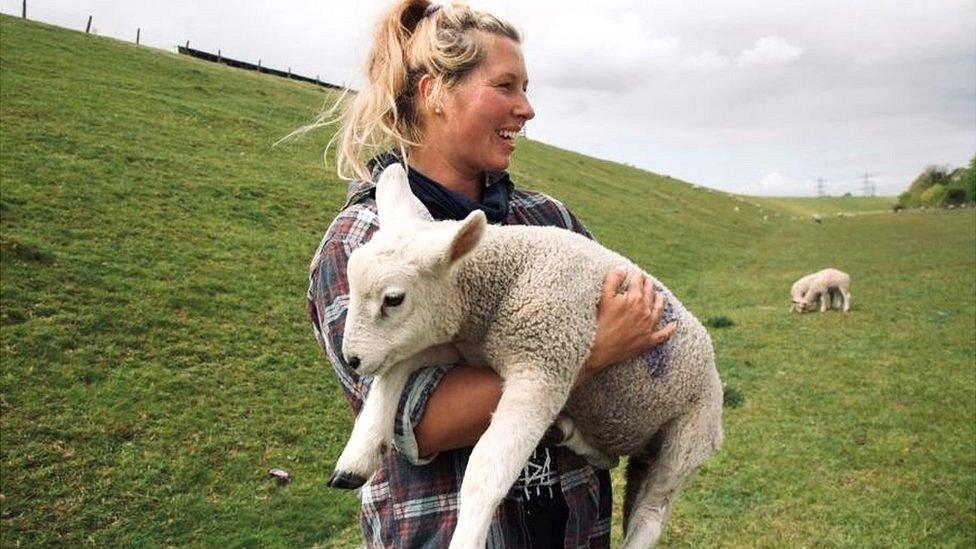
- Published2 August 2022
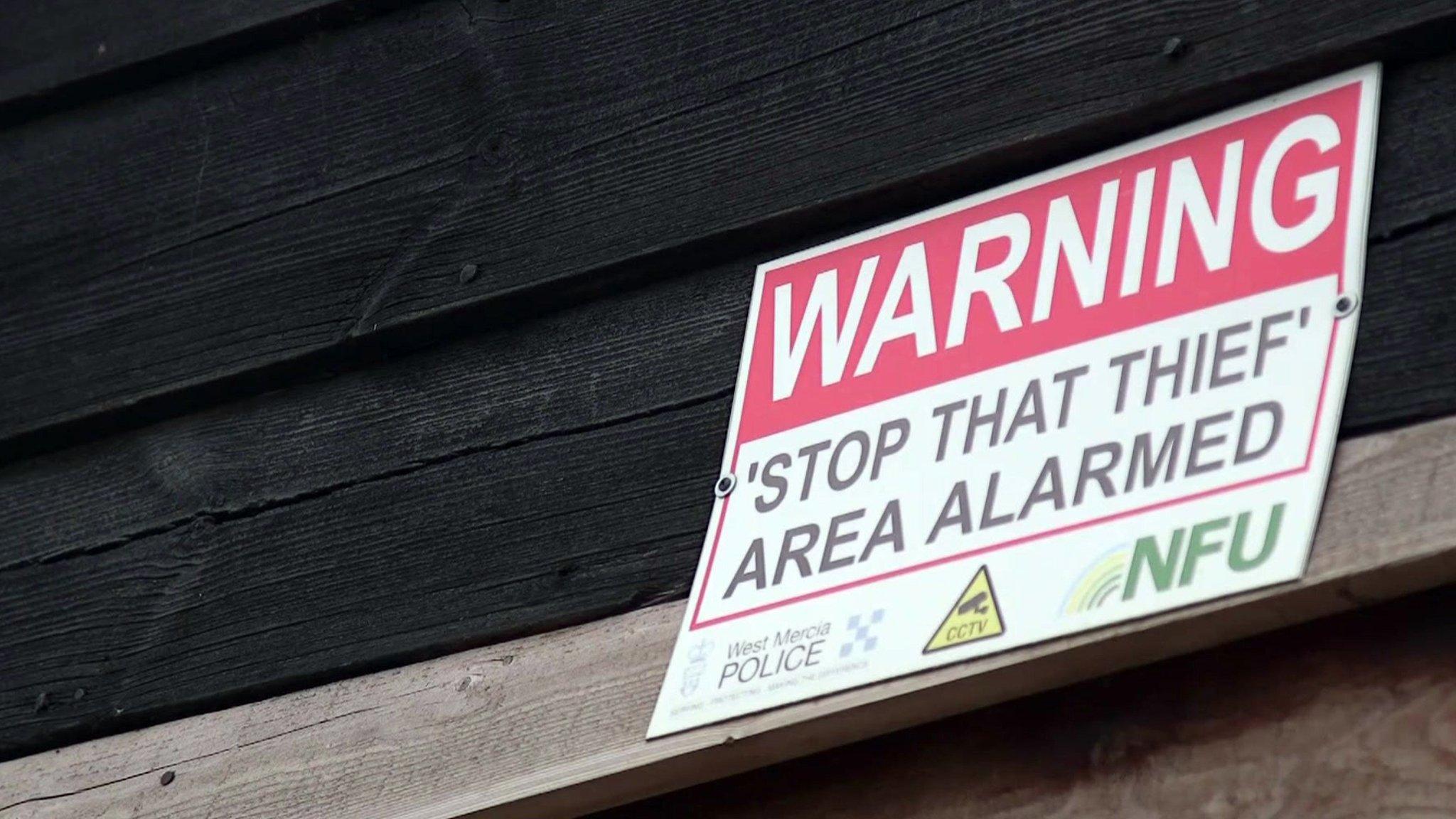
- Published27 June 2022
